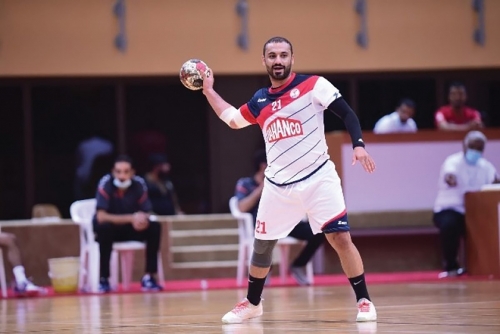Bahraini handball player Ahmed Al Maqaabi finds himself in a difficult situation in Kuwait after being barred from leaving the country due to a legal dispute with a housing rental company. Al Maqaabi, who played for a Kuwaiti club between 2021 and 2022, was informed by Kuwaiti border officials that he owes over 20,000 Kuwaiti dinars in unpaid rent as per a court order stemming from the case filed against him by the rental company. The issue arose when the club provided him with unsuitable accommodation, leading Al Maqaabi to seek alternative housing with the club’s agreement to cover the costs. However, a mistake in signing the housing agreement in his own name puts him in the current predicament when the club failed to pay the rent.
After being informed of the legal case against him, Al Maqaabi contacted the club management but received no response. He temporarily rented his own accommodation for the first four days before the club provided him with temporary housing until the matter is resolved. Al Maqaabi’s brother, Nidal, expressed concern over the situation and called on relevant authorities in Bahrain to intervene and find a resolution with Kuwait. Nidal also criticized the club’s handling of the matter, citing that the initial agreement with the club was for them to provide suitable accommodation and cover the rent, which they failed to do during Ahmed’s time with the club.
The situation has left Al Maqaabi in a state of uncertainty and concern for his future. Being unable to leave Kuwait due to the legal dispute puts his career and personal well-being at risk. The support and intervention of authorities in Bahrain are crucial to resolving the issue and allowing Al Maqaabi to return home safely. The reliance on the club to provide suitable accommodation and cover rent expenses highlights the importance of clear agreements and communication in professional sports contracts to avoid such situations in the future.
The case involving Al Maqaabi sheds light on the challenges faced by athletes when dealing with legal disputes while playing abroad. The complexities of international contracts and agreements can often result in unforeseen consequences for players, affecting their careers and personal lives. Ahmed’s experience serves as a reminder for athletes to carefully review and understand the terms of their contracts, ensuring they are protected in all aspects of their professional endeavors. The hopes of Ahmed and his family for a swift resolution to the issue demonstrate the impact of such situations on the lives of athletes and their loved ones.
In light of the legal dispute surrounding Al Maqaabi, it is essential for Bahraini authorities to actively engage with their counterparts in Kuwait to seek a resolution to the matter. The diplomatic efforts and support from both countries are key to ensuring the well-being and rights of their citizens, especially in cases where legal disputes arise during travels or professional engagements abroad. The collaboration between relevant agencies in both Bahrain and Kuwait can lead to a timely and fair resolution that addresses the concerns of all parties involved, allowing Ahmed Al Maqaabi to return home and continue his career without further disruptions.
The challenges faced by Al Maqaabi underscore the importance of proper legal guidance and support for athletes navigating international sports contracts. Ensuring that athletes have access to legal advice and representation when entering into agreements abroad is crucial to protecting their interests and rights in unfamiliar jurisdictions. The incident also highlights the need for sports clubs and organizations to uphold their commitments to players and provide adequate support in resolving disputes or issues that may arise during their tenure. By learning from cases like Al Maqaabi’s, stakeholders in the sports industry can work towards creating a more transparent and supportive environment for athletes, both on and off the field.











